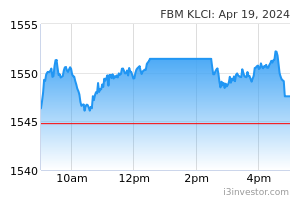Newsbreak: Consortium seeks exclusive rights to import hemp seeds

A consortium of private companies is understood to be seeking exclusive rights from the government to import hemp seeds for medicinal purposes.
The consortium is said to have written in to Minister of Water, Land and Natural Resources Xavier Jayakumar and sent the same proposal in the form of a letter to the Home Ministry under Tan Sri Muhyiddin Yassin’s purview, the Health Ministry under Datuk Dzulkefly Ahmad, Minister of Agriculture and Agro-based Industry Datuk Salahuddin Ayub and Kedah Menteri Besar Datuk Mukhriz Mahathir, among others.
Mukhriz was included in the letter because there is a plan to set up a hemp research facility in Bukit Tangga, Kedah. A source says the initial plan was for the facility to be located in Bidor, Perak, but it was shifted to Kedah after much deliberation.
The consortium is led by HGI Malaysia Sdn Bhd, which is said to have hemp suppliers in the US. Its partners are KRU Agro Sdn Bhd, which has the requisite plantation experience; Antah Strategic Services Sdn Bhd, which has a pharmaceutical and marketing business; and Tanah Makmur Sdn Bhd, which knows the local soil conditions.
However, there is no record of HGI on the website of the Companies Commission of Malaysia.
Interestingly, the letter sighted by The Edge is dated Oct 29, 2019, and most of the said ministries and government departments received it a day or two later.
A week later, on Nov 7, Dzulkefly announced that the cultivation of hemp, a type of herbal plant from the cannabis sativa species, was allowed for purposes of industrial research under Section 6B(2) of the Dangerous Drugs Act 1952. This gives the Minister of Health the authority to allow the cultivation of hemp for the production of fibre and seeds solely for non-commercial purposes.
“However, the implementation date has not been decided. It depends on the discussions with the Ministry of Water, Land and Natural Resources,” he told reporters after launching the 18th Annual Scientific Congress of Asia Pacific Association of Medical Toxicology 2019.
Dzulkefly stressed that the cultivation of cannabis for medicinal and other purposes was still not allowed until the laws were amended.
At the event, senior director of the pharmaceutical services programme in the Health Ministry, Dr Ramli Zainal, noted that many standard operating procedures had to be drawn up following the consent given for the cultivation of hemp.
“These include who can import it, who can plant it, what kind of land is suitable, how many layers and how high the fence should be,” he said, adding that the Health Ministry would draw up the guidelines on the cultivation of hemp.
Judging by the above, the consortium seems to have made some headway in its plans. While HGI is said to be the lead member of the consortium, the letter to Xavier had the letterhead “Tanah Makmur” and was signed by the private company’s CEO, Datuk Seri Erwan Mohd Tahir.
Erwan is independent non-executive chairman of Hextar Global Bhd (formerly Halex Holdings Bhd), which is involved in horticulture, plant tissue culture, vermiculture, health and beauty essentials such as cotton, tissue, wet wipes, sanitary and hygienic products, and the manufacture of agrochemicals. However, he is not a shareholder of the company.
Erwan, though, owns 80% of Tanah Makmur while the remaining 20% is held by Effendi Mohd Tahir, who could be a brother judging by their last names.
Tanah Makmur has a paid-up capital of RM100 and is currently a dormant company, checks with CTOS indicate. This could explain why the company has zero revenue and no assets.
KRU Agro is wholly owned by KRU Energy Asia Pte Ltd and is also a company with a paid-up capital of RM100 and no financial results to show. Its directors are Ahmad Azahari Hashim and Dennis Tan Jit Han.
Checks online show that KRU Energy is a Singapore-based privately held renewable energy development company.
In March 2018, Malaysia-based publicly traded outfit VSolar Group Bhd entered into a joint venture with KRU Energy and the latter’s subsidiary Rangkaian Iltizam Sdn Bhd. The JV then submitted an application to the Sustainable Energy Development Authority Malaysia for a renewable energy project.
In its 2019 annual report, VSolar says of the plan, “Although the initial requisite energy studies and site reviews were conducted, the application to the relevant authorities was delayed due to the change in administration. During this period, the group re-examined the potential viability of the proposed project and the partners collectively agreed to delay any further applications to the relevant authorities.”
Antah Strategic Services Sdn Bhd is 55%-controlled by Tunku Mohamed Alauddin Tunku Naquiyuddin and 45% by Yapp Chu Pui. The company is linked to the Negeri Sembilan royal family and has a paid-up capital of RM2 million.
In its financial year ended June 30, 2018, Antah Strategic Services chalked up an after-tax profit of RM2.04 million on revenue of RM167.12 million.
( 24,36 % )
( 39,38 % )
( 36,26 % )


